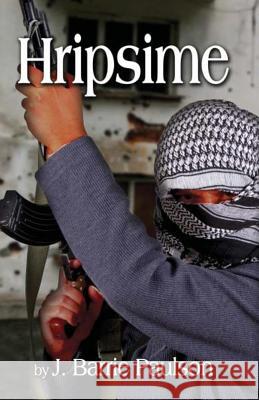Hripsime » książka
Hripsime
ISBN-13: 9781511855457 / Angielski / Miękka / 2015 / 222 str.
This biography, derived from Hripsime's memoir, revolves around 1975 Beirut. Trapped in her fourth-floor flat alone, she relives her story as Hripsime's beloved city crumbles around her. Born to Christian Armenian parents in Central Turkey, she loses her entire family very young during the Armenian Deportation of 1915. During WWI, the Ottoman Turks herd over one million and a half or more Armenians into the desert. Most died a grueling death, either slaughtered or of starvation, thirst or diseases. Hripsime, in her teens, is one of only a handful that escapes the massacre of massacres in Marash, Turkey during the French-Turkish War of 1920. Fleeing to Aleppo, Syria, Hripsime marries an Armenian Evangelist raising four children. Again, she and her family survive another war - WWII. Recalling her children and their families; her eldest daughter and physician husband as well as her second son live in America; the youngest son and daughter-in-law, both graduates of Harvard, live in Tehran, Iran in 1975 where they both teach at the University in Tehran. Her eldest son, wife and two children were living in West Beret but were able to escape. Because there's no electricity or phones for weeks, Hripsime does not know they have reached safety until she talks to her niece on a day when the phone actually rings. Her niece wants Hripsime to escape with her and husband by boat to Cyprus, but first they survive the bullets and the streets filled with debris, some impassable. Hripsime tells of her beloved Evangelist husband, Mihran who's amazing faith is far reaching. Passing eight years before 1975, Hripsime endures many weeks of horrible shellings and bombardments with food and water almost unattainable. Hripsime finds her younger brother, Luther in Addis-Ababa, Ethiopia soon after she settles in Aleppo. Finally she visits him after 40 years. His escape from the deportation is even more remarkable than Hripsime's. After being separated from his parents at age 7, he tells of an astonishing survival during the deportation and afterwards when he lives with the Bedouins. Hripsime finds him at an orphanage in Jerusalem which she describes as yet another miracle. It is Luther's daughter that helps Hripsime escape from Beirut. She counts this another miracle that God planned 40 years before. Hripsime feels she may be the only civilian left that hasn't evacuated Beirut. Her building is barely standing, the same as the entire city. Barely escaping Beirut, Hripsime along with her niece, and niece's husband obtain passage on a boat to Cyprus. But many Christians are escaping at this time and so the odds of obtaining passage is very slim but finally space on a boat is found. With no room to stretch their legs, the night is long as they barely reach Cyprus because of a life-threatening storm on the Mediterranean. In Cyprus there's no place for anyone to lay their head, but her niece's husband has family in Cyprus which provides a safe-haven. After contacting Hirpsime's son and daughter-in-law in Tehran, it is decided she is to live in the States with her daughter. A traumatic trip for her, her daughter-in-law travels with her the first leg to NY and then her grandson travels with her to the Midwest. While Hripsime lives out her last years in America, she perceives our nation as naive about the ways of her world - the Middle East. Although her extraordinary journey provides a good understanding of Middle-East philosophies, her story above all else is an inspiring biography of a born-again Christian Armenian woman with a remarkable faith. Hripsime, who survives four wars against all odds, describes her life as one miracle after another. Although my joy is writing novels, when 9-11 descended upon us all, I remembered this little book from the 1980's when I met Hripsime and her daughter Marie, a good friend of my mother. My mind would not rest until I began to write this fictionalized version of her incredible journey.
Zawartość książki może nie spełniać oczekiwań – reklamacje nie obejmują treści, która mogła nie być redakcyjnie ani merytorycznie opracowana.











